Filter by
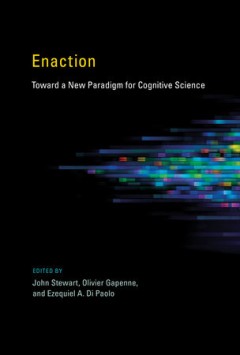
Enaction: Toward a new paradigm for cognitive science
"A Bradford book.""Based on an International CNRS Summer School organized by the Association pour la Recherche Cognitive (ARC), held from 29 May to 03 June 2006, Ile d'Ol?eron, France"--Text.This book presents the framework for a new, comprehensive approach to cognitive science. The proposed paradigm, enaction, offers an alternative to cognitive science's classical, first-generation Computation…
- Edition
- -
- ISBN/ISSN
- 9780262289795
- Collation
- 1 online resource (xvii, 463 pages) :illustrations
- Series Title
- -
- Call Number
- -
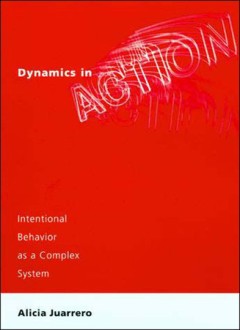
Dynamics in action: Intentional behavior as a complex system
"A Bradford book."OCLC-licensed vendor bibliographic record.
- Edition
- -
- ISBN/ISSN
- 0585176248
- Collation
- 1 online resource (x, 288 pages) :illustrations
- Series Title
- -
- Call Number
- -

No Medium
In No Medium, Craig Dworkin looks at works that are blank, erased, clear or silent, writing critically and substantively about works for which there would seem to be not only nothing to see but nothing to say. Examined closely, these ostensibly contentless works of art, literature and music point to a new understanding of media and the limits of the artistic object. Dworkin considers works pred…
- Edition
- -
- ISBN/ISSN
- 9780262312707
- Collation
- 1 online resource (219 pages)
- Series Title
- -
- Call Number
- -
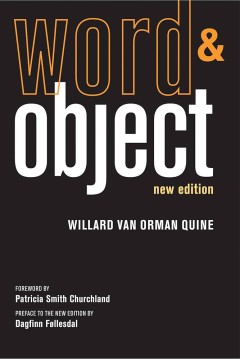
Word and Object
A new edition of Quine's most important work.Willard Van Orman Quine begins this influential work by declaring, "Language is a social art. In acquiring it we have to depend entirely on intersubjectively available cues as to what to say and when." As Patricia Smith Churchland notes in her foreword to this new edition, with Word and Object Quine challenged the tradition of conceptual analysis as …
- Edition
- New ed.
- ISBN/ISSN
- 9780262312790
- Collation
- 1 online resource (xxx, 277 pages)
- Series Title
- -
- Call Number
- -

Philosophy of helpfullness volume 2
- Edition
- -
- ISBN/ISSN
- -
- Collation
- 2 v
- Series Title
- -
- Call Number
- 100 HOP p
- Edition
- -
- ISBN/ISSN
- -
- Collation
- 2 v
- Series Title
- -
- Call Number
- 100 HOP p
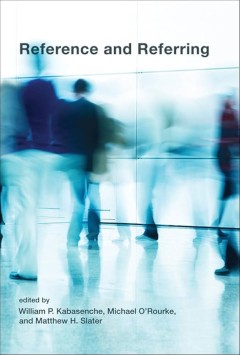
Reference and Referring
Original essays on reference and referring by leading scholars that combine breadth of coverage with thematic unity. These fifteen original essays address the core semantic concepts of reference and referring from both philosophical and linguistic perspectives. After an introductory essay that casts current trends in reference and referring in terms of an ongoing dialogue between Fregean and Ru…
- Edition
- -
- ISBN/ISSN
- 9780262306034
- Collation
- 1 online resource.
- Series Title
- -
- Call Number
- -

Thinking like a Mall: Environmental Philosophy after the End of Nature
A provocative argument that environmental thinking would be better off if it dropped the concept of ""nature"" altogether and spoke instead of the built environment.OCLC-licensed vendor bibliographic record.
- Edition
- -
- ISBN/ISSN
- 9780262326988
- Collation
- 1 online resource (x, 283 pages) :illustrations
- Series Title
- -
- Call Number
- -
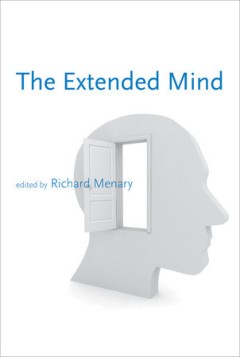
The extended mind
Leading scholars respond to the famous proposition by Andy Clark & David Chalmers that cognition & mind are not located exclusively in the head.OCLC-licensed vendor bibliographic record.
- Edition
- -
- ISBN/ISSN
- 9780262266024
- Collation
- 1 online resource (viii, 382 pages).
- Series Title
- -
- Call Number
- -

The Elm and the Expert: Mentalese and Its Semantics
"A Bradford book."OCLC-licensed vendor bibliographic record.
- Edition
- -
- ISBN/ISSN
- 0585020515
- Collation
- 1 online resource (xii, 128 pages) :illustrations.
- Series Title
- -
- Call Number
- -

Truth in Husserl, Heidegger, and the Frankfurt school :critical retrieval
An innovative, ambitious, tradition-crossing study drawing on the work of Husserl, Heidegger, Horkheimer, Adorno, and Habermas to propose a new and transformative concept of truth. The idea of truth is a guiding theme for German continental philosophers from Husserl through Habermas. In this book, Lambert Zuidervaart examines debates surrounding the idea of truth in twentieth-century German con…
- Edition
- -
- ISBN/ISSN
- 9780262340441
- Collation
- 1 online resource (256 pages)
- Series Title
- -
- Call Number
- -
 Computer Science, Information & General Works
Computer Science, Information & General Works  Philosophy & Psychology
Philosophy & Psychology  Religion
Religion  Social Sciences
Social Sciences  Language
Language  Pure Science
Pure Science  Applied Sciences
Applied Sciences  Art & Recreation
Art & Recreation  Literature
Literature  History & Geography
History & Geography